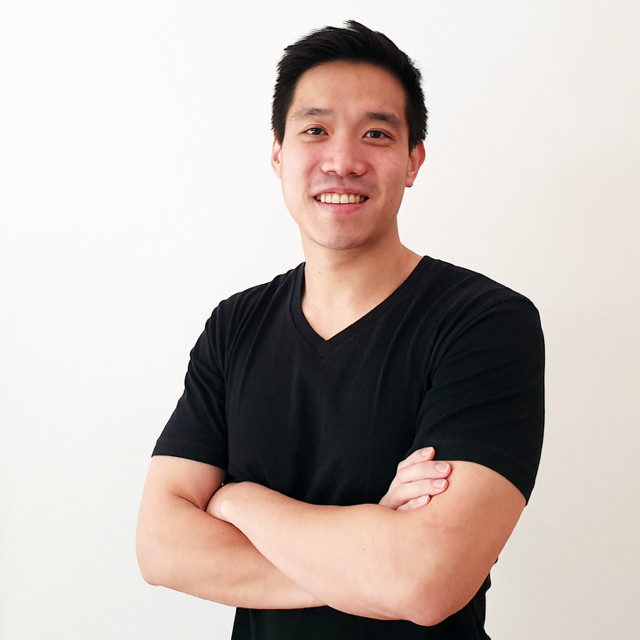Popular Reads
Top Results
Can't find what you're looking for?
View all search resultsPopular Reads
Top Results
Can't find what you're looking for?
View all search resultsPintu CEO says education vital in crypto industry
As Indonesians enter the crypto market in droves, Pintu CEO Jeth Soetoyo says investment education is crucial.
Change text size
Gift Premium Articles
to Anyone
T
he cryptocurrency craze has caught on in Indonesia. In May, the country had 6.5 million crypto investors, handily exceeding the 5.37 million retail investors registered with the Indonesia Stock Exchange (IDX). Despite the buzz, many still do not understand digital assets, and crypto investment is often associated with fraud. Jeth Soetoyo, the CEO of crypto investment app Pintu, spoke with The Jakarta Post’s Eisya A. Eloksari on Dec. 8 to discuss how the start-up is learning alongside Indonesia’s new crypto investors and to share his ideas on how to improve the cryptocurrency ecosystem.
Question: How has the cryptocurrency ecosystem grown over the past years?
Answer: Crypto tends to be driven by macroeconomic policies. I think around the world a lot of governments are injecting additional liquidity and doing a lot of quantitative easing, which pushes people to take more risks in terms of their investments.
As interest rates in traditional assets trend toward zero, a lot of people are looking for products with higher yields, and as that happens, crypto is one of those products that has generated a lot of returns in the past two years.
We also see off-the-charts user growth. According to Amplitude’s Product Report 2021, as of October, Pintu achieved 1,236 percent growth in monthly active users in a 13-month period, with over 700,000 monthly active users.
What is your strategy for educating the market?
The best way to get into crypto is to dip your toe in first, but we understand that there are still a lot of users who might not be aware of crypto, let alone the concept of investing, so our approach is educational first.
Our app has an academy section where we teach users about fundamentals of crypto investing. We also post on YouTube and work with financial influencers to help educate our users through social media.
We also have a dollar cost averaging (DCA) tool that allows users to invest the same amount of money regularly, to educate users that consistency is much better than speculative trades, even if they are investing in a smaller size. This tends to be a much better strategy over the long term.
The crypto world has often been marred by negative perceptions like scams, Ponzi schemes and money laundering, so education is very important.
What is your take on the crypto regulatory framework in Indonesia?
Definitely regulators want to manage this industry better. One way [the Trade Ministry does this is that it has] identified more than 200 crypto [assets for] its whitelist.
I think Indonesia is much more established and forward-thinking than China and India, for example. Indonesia is closer to the US, where the regulatory framework is a bit more established, and that is a positive thing.
It is inevitable that crypto will be adopted by people. The question then becomes [how best to] regulate it in a safe manner that does not stifle innovation but still guards consumer interest.
How do you determine which tokens to put on your platform?
Globally, there are thousands of cryptocurrencies and tokens out there, but we have 36 listed on our platform at the moment.
There were [many] projects that approached us, but we try to take a conservative stance. We look at the team behind the project, its growth and sustainability around economics, as well as the technical makeup of the cryptocurrency.
A big portion of the decision also comes from our customers themselves, depending on what our customers ask us to list. I think that is also usually a good gauge of which projects we might want to bring forward.
What is next for crypto and blockchain technology, say, in 2022?
I think the future is going to be even brighter. At around 2 percent of the population, we are still very low in terms of penetration. We are about five years behind some more developed countries, which already have 10 percent to 20 percent in terms of penetration. So, we still have a lot of upside going forward.
Today, most cryptocurrency users [are more interested in] investment and trading. In 2022, we will see more development and crypto-native apps that live on the blockchain made by Indonesian teams. We have already seen a couple, but I think next year, we will see a blossoming of this phenomenon.
How do you ensure the safety of your platform?
Firstly, we do e-KYC (know your customer) as required by the Indonesian government. We spread our risk by working with a few different custodians, so we do not keep our assets in one place.
Our assets are also insured, so if a breach does happen, it is covered by the insurance company. Multiple parties also need to sign off on transactions happening on the platform.










